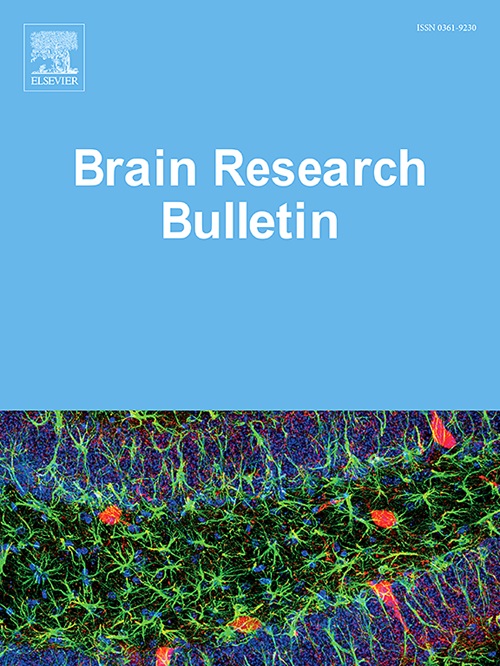Effects of Chinese idioms and short sentences on language and cognitive in stroke non-fluent aphasia
IF 3.5
3区 医学
Q2 NEUROSCIENCES
引用次数: 0
Abstract
This study aims to investigate how rehabilitation training using Chinese idioms and short phrases affects stroke patients with non-fluent aphasia's language recovery and daily communication abilities. Random assignments were made to place the 82 stroke patients with non-fluent aphasia either the intervention group (n = 41) or the control group (n = 41). In the realm of neurology, both groups received conventional treatment and rehabilitation. On the other hand, the intervention group received additional rehabilitation training that was concentrated on Chinese idioms and short phrases. The study findings indicated that the group being observed showed significant improvements in several areas including listening comprehension, paraphrasing, speaking, vocalization, reading, CADL score, FDA score, speech articulation, MPT, loudness, and MoCA following a four-week training session. Correlation analysis revealed substantial differences across the parameters, except for MPT and cloudiness. The results indicate that targeted language rehabilitation training that emphasizes Chinese idioms and short phrases may greatly improve listening, recounting, speaking, pronunciation, reading skills, as well as everyday communication and cognitive capacities.
汉语成语和短句对中风非流利性失语症语言和认知的影响。
本研究旨在探讨汉语成语短语康复训练对脑卒中非流利性失语患者语言恢复及日常沟通能力的影响。将82例脑卒中非流利性失语患者随机分为干预组(n = 41)和对照组(n = 41)。在神经学方面,两组患者均接受常规治疗和康复治疗。另一方面,干预组接受额外的康复训练,主要集中在汉语成语和短句上。研究结果表明,经过为期四周的培训,观察组在听力理解、释义、口语、发声、阅读、CADL评分、FDA评分、语音清晰度、MPT、响度和MoCA等几个方面都有显着改善。相关分析显示,除MPT和云量外,各参数之间存在显著差异。结果表明,以汉语成语和短句为重点的针对性语言康复训练,对听力、复述、口语、发音、阅读能力以及日常交际和认知能力均有显著提高。
本文章由计算机程序翻译,如有差异,请以英文原文为准。
求助全文
约1分钟内获得全文
求助全文
来源期刊

Brain Research Bulletin
医学-神经科学
CiteScore
6.90
自引率
2.60%
发文量
253
审稿时长
67 days
期刊介绍:
The Brain Research Bulletin (BRB) aims to publish novel work that advances our knowledge of molecular and cellular mechanisms that underlie neural network properties associated with behavior, cognition and other brain functions during neurodevelopment and in the adult. Although clinical research is out of the Journal''s scope, the BRB also aims to publish translation research that provides insight into biological mechanisms and processes associated with neurodegeneration mechanisms, neurological diseases and neuropsychiatric disorders. The Journal is especially interested in research using novel methodologies, such as optogenetics, multielectrode array recordings and life imaging in wild-type and genetically-modified animal models, with the goal to advance our understanding of how neurons, glia and networks function in vivo.
 求助内容:
求助内容: 应助结果提醒方式:
应助结果提醒方式:


